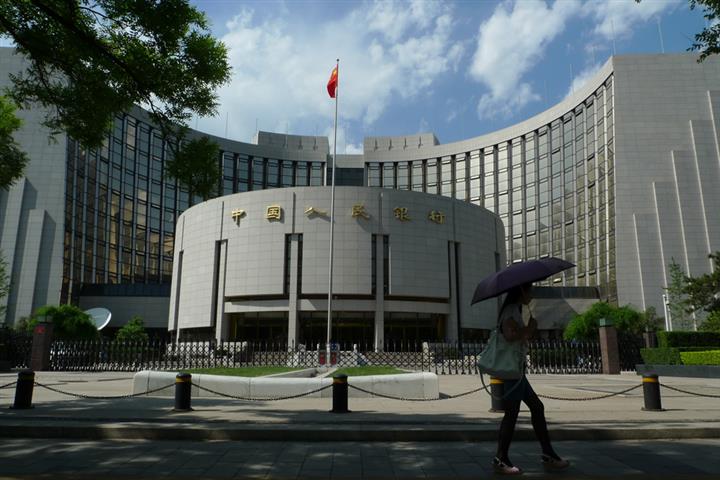 Real Estate Is Part of PBOC’s Quarterly Meeting Agenda for First Time in Decade
Real Estate Is Part of PBOC’s Quarterly Meeting Agenda for First Time in Decade(Yicai Global) Sept. 28 -- The People's Bank of China has included real estate in its regular quarterly meeting for the first time in over ten years as the liquidity crisis at some large property developers threatens to upset the stable growth of the sector.
It is important to “maintain the healthy development of the real estate sector and the lawful rights and interests of residential housing consumers,” the PBOC said at its meeting on Sept. 24. This is the first time since the first quarter of 2009 that the words ‘real estate’ have been included in the subsequent press release.
The inclusion targets the recent operational difficulties faced by certain large property developers, Shanghai Securities News reported today, citing Yan Se, chief economist at Founder Securities, in a reference to the heavily indebted China Evergrande Group that is struggling to meet regulatory borrowing limits.
Last month the PBOC and the China Banking and Insurance Regulatory Commission summoned the Guangzhou-based real estate titan for talks and instructed executives to do their best to maintain the healthy and steady development of the country’s real estate market in line with the government’s strategic plan.
"We need to be well prepared for risks to commercial banks and individual creditors that are passed on from large property firms that are experiencing difficulties," Yan said. “In the exceptional situation where a developer has received the downpayment for properties but is unable to deliver the houses to buyers, the matter must be handled quickly and efficiently to prevent the overflow of risks.”
The central bank is sticking to the principle that houses are for living in and not for speculation, and it will continue to implement policies that maintain stability in real estate financing, Yan said.
Credit Growth
The PBOC will promote the role of relending, rediscounting and other monetary policy tools in the real economy and another CNY300 billion (USD46.5 billion) worth of reloans that target small lenders shall be put to good use, it said. It also supports more loans to small, micro and individually-owned businesses as well as the deferral of principal and interest repayments.
Faster implementation of re-lending will enhance the stability of total credit growth amid slowing credit growth, said Ming Ming, vice director at Citic Securities Research Institute. It will also accelerate the advance of structural easy credit and help stabilize social financing growth.
Monetary policy shall enhance coordination with fiscal, industrial and regulatory bodies and plan financial support for the real economy and risk prevention as a whole, the PBOC said.
China's economic recovery is relatively complicated and is facing many challenges, a macro-economic researcher at a commercial lender told Yicai Global. Structural policies are preferred amid the complex global economic situation to improve the quality and effectiveness of policies, optimize credit structure and ensure the steady growth of total credit.
Editors: Xu Wei, Kim Taylor